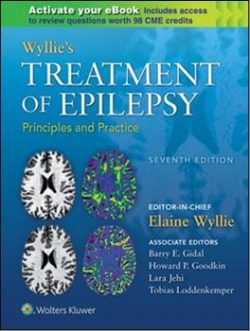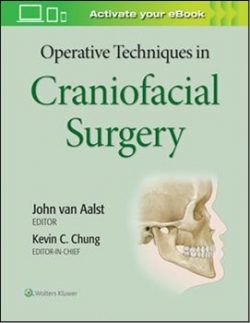This volume brings together the primary challenges for 21st century cognitive sciences and cultural neuroscience in responding to the nature of human identity, self, and evolution of life itself. Through chapters devoted to intricate but focused models, empirical findings, theories, and experiential data, the contributors reflect upon the most exciting possibilities, and debate upon the fundamental aspects of consciousness and self in the context of cultural, philosophical, and multidisciplinary divergences and convergences. Such an understanding and the ensuing insights lie in the cusp of philosophy, neurosciences, psychiatry, and medical humanities. In this volume, the editors and contributors explore the foundations of human thinking and being and discuss both evolutionary/cultural embeddedness, and the self-orientation, of consciousness, keeping in mind questions that bring in the interdisciplinary complexity of issues such as the emergence of consciousness, relation between healing and agency, models of altered self, how cognition impacts the social self, experiential primacy as the hallmark of consciousness, and alternate epistemologies to understand these interdisciplinary puzzles.
1. Bridging Self, Culture and Consciousness Sangeetha Menon, Nithin Nagaraj and V. V. Binoy. PART I: Emergence of Consciousness.- 2. Avian Cognition – From the Perspective of Neuroscience and Behaviour Soumya Iyengar, Pooja Parishar and Alok Nath Mohapatra.- 3. Meditation, Cognitive Reserve and Neural Basis of Consciousness Ajay K. Nair and Bindu Kutty.- 4. Attention and Perception in the Deaf: A Case for Plasticity in Consciousness Seema Prasad and Ramesh Kumar Mishra.- 5. Promises and Limitations of Conscious Machines L.M. Patnaik and Jagadish S. Kallimani. PART II: Healing, Agency and Being.- 6. “Is Grandma Still There?”: A Pastoral and Ethical Reflection on the Soul and Continuing Self-Identity in Deeply Forgetful People Stephen G. Post.- 7. Children with Autism Spectrum Disorders: A Case for ‘Alternate Selves’? Prathibha Karanth.- 8. Auditory hallucinations in schizophrenia: a window to the conscious self and its aberrations John P. John, Pravesh Parekh, Harsha N. Halahalli, Sangeetha Menon, and Bindu M. Kutty.– 9. Body and Self-reflection: The Crux of Yoga Philosophy and Practice Sangeetha Menon. PART III: The Social Self, Culture and Cognition.- 10. Fullness, Trust and the Self Rajesh Kasturirangan.- 11. Autobiographical Memory: Where Self, Wellbeing and Culture Congregate Binoy V V, Ishaan Vasishta, A. Rathore and Sangeetha Menon.- 12. The Alchemy of Musical Memory: Connecting Culture to Cognition Deepti Navaratna.- 13. The neuroscience of blame and punishment Morris B. Hoffman and Frank Krueger.- 14. Becoming conscious about the existence of the non-existents: Logic, Language and Speech Acts Samir Karmakar.- 15. A dimensional approach to emotions and other mental states based on Sankhya philosophy Shankar Rajaraman. PART IV: The Self and Alternate Epistemologies.- 16. Brain and Self – A neurophilosophical account Georg Northoff.- 17. Self-Variation Owen Flanagan & Wenqing Zhao.- 18. The problem of qualia in the perspective of the Buddhist theories of experience Viktoria Lysenko.- 19. Getting Stuck on Myself: The Cognitive Processes underlying Mental Suffering Marieke van Vugt. PART V: Consciousness, Experiential Primacy and Knowing.- 20. Beyond Panpsychism: The radicality of phenomenology Michel Bitbol.- 21. Is ‘Information’ Fundamental for a Scientific Theory of Consciousness? Nithin Nagaraj and Mohit Virmani.- 22. Encircling the Consciousness Conundrum Ravindra M. Singh.-23. What does it mean for qualia to be intrinsic? S. Siddharth and Sangeetha Menon.- 24. Matter and Consciousness in Indian Philosophical Analysis V.N. Jha.
Sangeetha Menon is a professor at the National Institute of Advanced Studies (NIAS), Bangalore, India, and heads the Consciousness Studies programme of NIAS. She is a nominated member of the International Society for Science and Religion (Cambridge), a Board Member of the International Association for Transpersonal Psychology, and a Council Member of the Indian Council of Philosophical Research, Ministry of Human Resources Development, Government of India. Professor Menon has authored Brain, Self and Consciousness (Springer, 2014); Beyond Experience: Consciousness in the Gita; coauthored Dialogues: Philosopher Meets Seer; and coedited Interdisciplinary Perspectives on Consciousness and the Self (Springer, 2014); Consciousness, Experience and Ways of Knowing: Perspectives from Science, Philosophy and the Arts (2006); Science and Beyond: Cosmology, Consciousness and Technology in Indic Traditions (2004); Consciousness and Genetics (2002); and Scientific and Philosophical Studies on Consciousness (1999). She has visited and spoken at many universities in India, the United States, England, Australia, Germany, France, Italy, Spain, Japan, Taiwan, Singapore, and Moscow. She has been visiting professor at the Oxford Centre for Hindu Studies, Oxford University, and at the Nanzan Institute of Religion and Culture, Nanzan University, Japan. She was invited to be a panellist at the World Parliament of Religions, Melbourne, in 2009. Apart from her academic interests, she writes poetry, fiction and is an avid photographer, artist and web-designer. She also engages in charity programmes, being a trustee of the Sambodh Foundation, Bangalore.
This volume brings together the primary challenges for 21st century cognitive sciences and cultural neuroscience in responding to the nature of human identity, self, and evolution of life itself. Through chapters devoted to intricate but focused models, empirical findings, theories, and experiential data, the contributors reflect upon the most exciting possibilities, and debate upon the fundamental aspects of consciousness and self in the context of cultural, philosophical, and multidisciplinary divergences and convergences. Such an understanding and the ensuing insights lie in the cusp of philosophy, neurosciences, psychiatry, and medical humanities. In this volume, the editors and contributors explore the foundations of human thinking and being and discuss both evolutionary/cultural embeddedness, and the self-orientation, of consciousness, keeping in mind questions that bring in the interdisciplinary complexity of issues such as the emergence of consciousness, relation between healing and agency, models of altered self, how cognition impacts the social self, experiential primacy as the hallmark of consciousness, and alternate epistemologies to understand these interdisciplinary puzzles.
Includes interdisciplinary epistemologies and their convergences that highlight the complex nature of consciousness
Explores the self in the context of culture and philosophical traditions
Provides narratives from medical humanities to bridge theory and practice
Includes interdisciplinary epistemologies and their convergences that highlight the complex nature of consciousness
Explores the self in the context of culture and philosophical traditions
Provides narratives from medical humanities to bridge theory and practice





